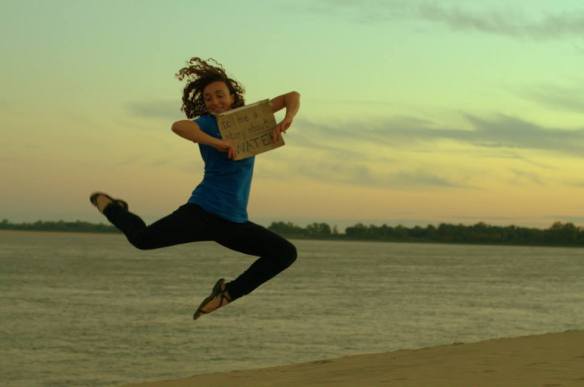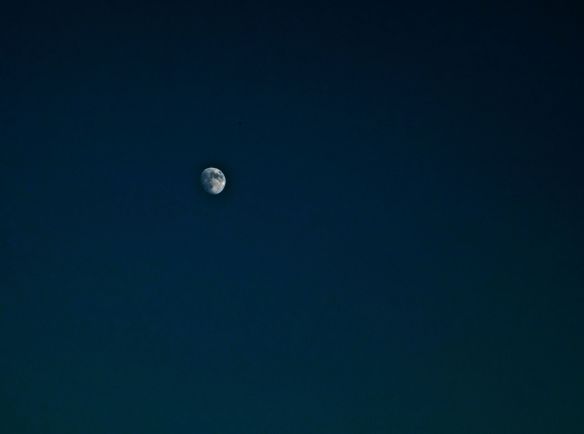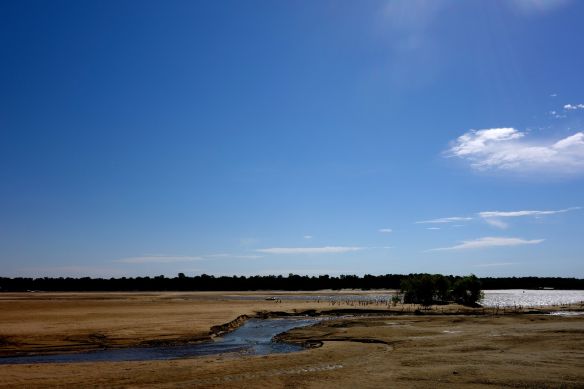There’s a bobcat in the freezer.
I’m fixing to leave for a three-day canoe trip with Quapaw Canoe Company and a group of professors, doctors, and a spider scientist from Search for a Healthy City.
Braxton and I repack a cooler to fit in a stray cantaloupe. I pass him a block of sharp cheddar and two lemons and ask after the bobcat: “Where did it come from?”
I can see the animal’s smashed-in face, blood crusted red around the jaw.
“It was run over by a car,” Braxton says, his words crisp and direct, an economy of breath. “John is saving it to draw.”
Bobcats are a rare sight in my hometown in the woods of Connecticut. My mom likes to tell the story of the time she saw one while running on the Stuart Chase Lookout trail around dusk––“We just looked at each other and backed away.”
When we hike together in Topstone Park, she points to long parallel scratches on tree trunks, the places where bobcats sharpen their claws.
“And up there, those are the rock caves they live in.”
For good measure she adds: “Don’t stray off the path.”
Up this close, the dead cat in the freezer is smaller than I had imagined, though Braxton chimes: “it’s still pretty darn big.”
~
On the night before paddling off, we gather as a group around a long table in the basement of the Clarksdale Public Library to discuss Huck Finn. The conversation shifts from the text as we wax romantic about our departure the next morning into “the wild” of the Mississippi River. The freedom of the water’s churning. The lack of humans in this riparian landscape.
“I love feeling small out in the wild,” C says.
“It makes civilization more bearable,” R adds.
“Yeah, I’m refreshed when I return. Like taking a cool sip of water. Even the people in town say I glow when I return,” M smiles.
“I don’t believe in the idea of wilderness,” I interject.
I’ll admit this idea is not my own. In his article “The Trouble with Wilderness or, Getting Back to the Wrong Nature,” (1995) William Cronon writes:
The more one knows of its peculiar history, the more one realizes that wilderness is not quite what it seems. Far from being the one place on earth that stands apart from humanity, it is quite profoundly a human creation—indeed, the creation of very particular human cultures at very particular moments in human history. It is not a pristine sanctuary where the last remnant of an untouched, endangered, but still transcendent nature can for at least a little while longer be encountered without the contaminating taint of civilization. Instead, it’s a product of that civilization, and could hardly be contaminated by the very stuff of which it is made. Wilderness hides its unnaturalness behind a mask that is all the more beguiling because it seems so natural. As we gaze into the mirror it holds up for us, we too easily imagine that what we behold is Nature when in fact we see the reflection of our own unexamined longings and desires.
Wilderness is a mirror, a human creation. Wilderness is the making “of very particular human cultures at very particular moments in human history.” When we look at wilderness, we see our own desires reflected back.
And aren’t I a thing of “nature”––my human body, this very mammalian me? I want to blur the lines of what is inside and what is outside of me. We are all wild.
~
A mug of campfire brewed ginger tea in his hand, C points to the sky: “There ain’t no man on the moon. He’s a bunny! A sideways bunny!”
R picks up his twelve-string guitar and sings up to the moon and no one else in particular. As the night lengthens and people peel away from the fire to their tents one by one, the guitar picker says he’ll sleep on the beach because he wants to feel close to the fire of the stars.
~
I wake to the roar of a passing tugboat.
I unzip my tent and slip on sandals with the intention of peeing a few steps away from my tent… and then look up. The slice of sky between the treetops is so brilliant that I have to see it whole. I weave though the willow grove out into the wide-open sandbar.
A light wind whispers from the northwest. I bare my bum to the river and look up to the Milky Way’s spilt arch. Earlier in the night when the fire was high, the moon whited out the seven sisters and Orion, but there they are, familiar and strange, tucked into this mess of prickles of light.
I stay out, feeling small and free, until my toes are numb from the cold.
~
Three days later, my hair still smells of woodsmoke. I prolong washing to preserve the memory of where I was: firewood and rivermud. Whenever I catch a whiff of my hair and clothes, I can’t help but close my eyes and smile.
~
What is wilderness?
Wilderness is being able to check the score of the Ole Miss v. Alabama football game from the comfort of a sandbar. Wilderness is waking to tugboat traffic on the mightiest commercial river in North America and being able to see the Milky Way. Wilderness feeling alone but connected to the planet I share with spiders and stars. Wilderness is tugboat waves crashing on the sandbar where we camp––the most comforting, primordial sound. If I close my eyes I could be at a beach. Tomorrow we’ll paddle more.




Pingback: Support This: A Film on the Rio Grande by Braxton Barden | One Bike, One Year